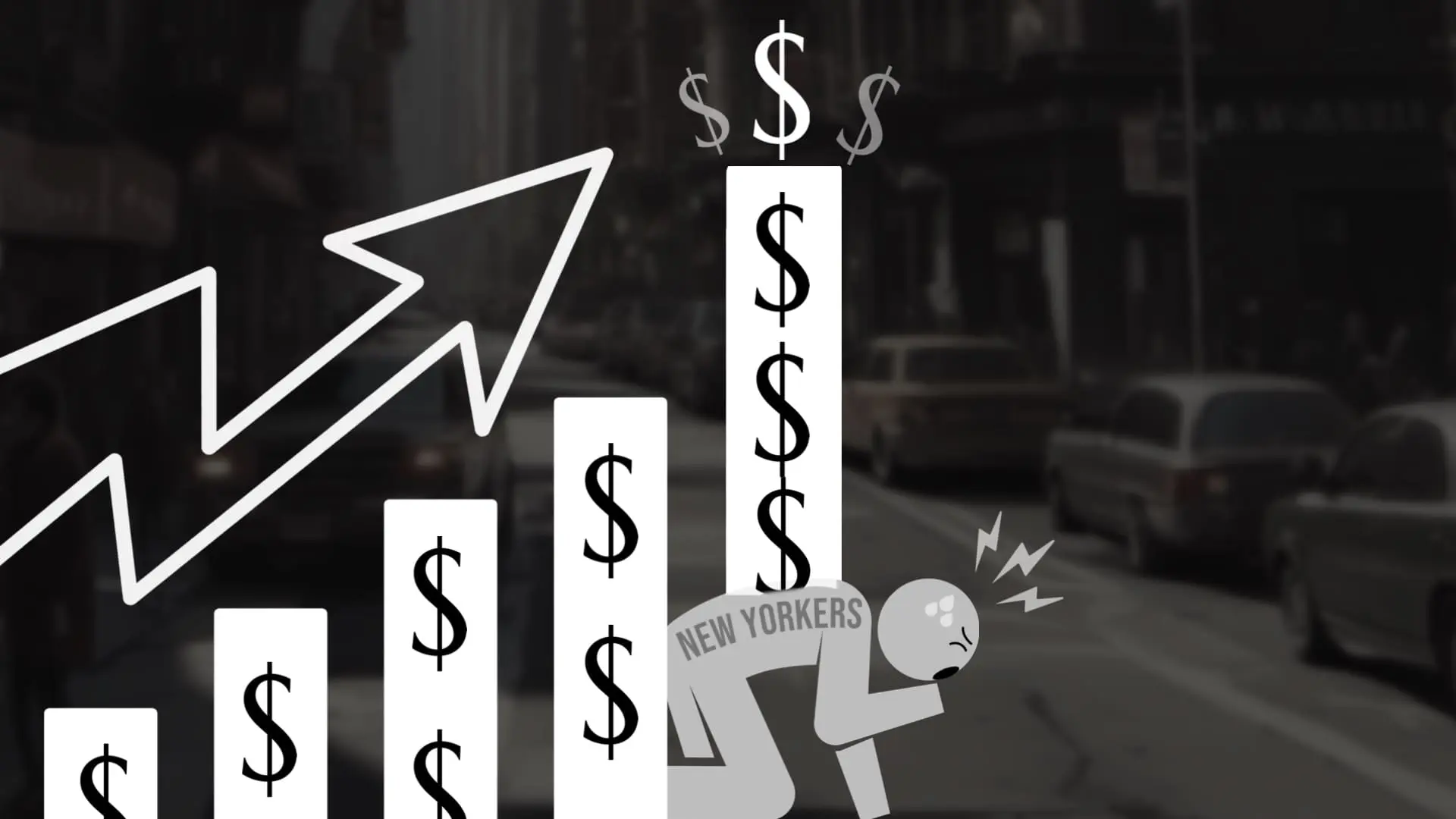Impact of Illegal Deregulation
Illegal deregulation of rent-stabilized units in NYC may seem like it is a thing of the past following the passing of the Housing Stability & Tenant Protection Act of 2019, but nothing could be further from the truth. Illegal deregulation is fraud that happens endlessly until the unit is placed back under regulation again, because all monthly costs exceeding the legal limit for the given unit are illegal overcharges. Old tenants get defrauded, new tenants get defrauded, and the pockets of the landlord? Lined and heavy. The disruption to our communities leads to further gentrification & deepens the housing crisis. Tenants face unjust evictions and skyrocketing rents, making affordable housing increasingly scarce.

How Landlords Illegally Deregulate Units
False Renovations
Landlords may claim significant renovations to justify rent increases, but often these renovations are exaggerated or never occurred. If your apartment unit was regulated at some point and then suddenly it became exempt, take a close look at the information surrounding the deregulation year. Is there a reason listed? The high rent vacancy loophole was outlawed in 2019, but that doesn’t mean that landlords were entirely following the law back then when it was allowed.
Some landlords intentionally fail to register units with the DHCR, effectively removing rent stabilization protections without any legal basis.
Let’s focus for a moment on the landlords who make false claims of capital improvement increases. For this claim, in order for a landlord to have legally deregulated an apartment unit, the renovation costs had to exceed a certain threshold. That threshold? 1/40th of renovation costs plus the stabilized rent price. The problem for landlords? That’s a lot of money for them to have to pay — frequently an upwards of $100,000 worth of renovations to deregulate a single unit.
So what did landlords do? Yep! They did what they do best — they lied.
By the way, if these numbers all seem confusing, don’t sweat it. We went ahead and created a deregulation calculator for you.
Wondering where all of this information is? It’s all in your apartment’s rent history documents. These records, held by the HCR (formerly DHCR), document the rent price of your apartment unit over the span of multiple decades. Its in these documents you can begin to shape the story of what happened, if your apartment was illegally deregulated, and how to go about re-regulating it and getting paid back the money you have been overcharged. You can request your rent history documents from HCR here.
But what about before the deregulation? What happened to the last rent stabilized tenant? Well.. it could have been many things!
Harassment & Buyouts
Tenants may be pressured into leaving through harassment and/or buyout offers, paving the way for the illegal deregulation. The harassment can take the form of refusal to provide heat and hot water, locking the tenant out of their home, ignoring the tenant’s requests for repairs, entering the unit without prior disclosure, etc. But it can also take take the form of frivolous litigation: Unfounded claims that the tenant doesn’t reside in the unit any longer, unfounded claims of lease agreement violations, etc. The legal costs compounding paired with the landlord offering to buy them out of your lease puts a tenant in a situation where they have a choice, but they don’t actually have a choice.
Death & Refusal to Acknowledge Succession Rights
Tenants are humans, and humans all die. Most humans however don’t use someone’s death as fraudulent financial leverage, but New York City landlords aren’t most people. There are cases of children of tenants (who are entitled to the succession of the stabilized apartment) being denied their succession rights & forced to battle in court with the landlord — all in the immediate aftermath of losing their loved one & cruelly disturbing their grieving.
Spotting Illegal Deregulation
It's crucial for tenants to be vigilant. Here are some red flags:
- Unexplained rent increases exceeding legal limits. When you submit your rent history to RentHistory.org, you instantaneously can review whether or not there were any illegal increases historically for your apartment. Landlord thought he was pulling a fast one back in '84? Our tools will be able to tell you in an instant if there was an illegal overcharge, by how much, what the rent was expected to be, and how that snowball effect potentially decreased renovation costs for the landlord when deregulating — or, if your unit is still stabilized — how much you are currently being overcharged as a result of that overcharge from decades ago.
- Landlord refuses to renew a lease without valid reason. Especially now that many buildings are subject to Good Cause. When a landlord wants the occupants to be rotational, it’s a sign that they don’t like when their tenants get enough time to put two and two together.
- Landlords who exclusively rent to college students. This goes hand-in-hand with that rotational occupancy. What better tenant than someone who is guaranteed to be leaving in a year or two?
- Lack of Rent Stabilization Rider with your lease.
- Suspicious rent history documents.
- Living in a building that was once filled with regulated units but most or all have since switched to market-rate units following your landlords acquisition of the property.
- No record of your apartment in HCR's database.

Fighting Back Against Illegal Deregulation
Know Your Rights
Familiarize yourself with New York's rent stabilization laws. Knowledge is your first line of defense.
Request Your Rent History
It’s where we got our name from! Your rent history is your crucial first clue. From there, use RentHistory.org and its tools to paint yourself a clearer picture of what happened to your apartment.
Reach Out
To a local tenant rights advocacy group, to a lawyer, to the former tenant, your neighbors, anyone who can provide you more info! Information is your strength here. You can never have too much of it!
Document Everything
Keep records of all communications, leases, and rent payments. This documentation is vital in legal proceedings.
File Complaints
Submit a complaint to the HCR if you suspect illegal practices. Legal aid organizations can assist with the process.
Join a Tenant Association
There's strength in numbers. Organize with other tenants to collectively address issues and advocate for your rights.
Also!
Landlord Loopholes: The Abuse of LLCs
Many landlords use Limited Liability Companies (LLCs) to obscure ownership, making it harder for tenants to hold them accountable.
Why LLCs?
LLCs protect personal assets from liability, but they can be misused to hide illegal activities and evade responsibilities.
Unmasking the Owners
Research property records and corporate filings to identify the real owners behind the LLCs. Public databases and tools like RentHistory.org's Building Search can help.
